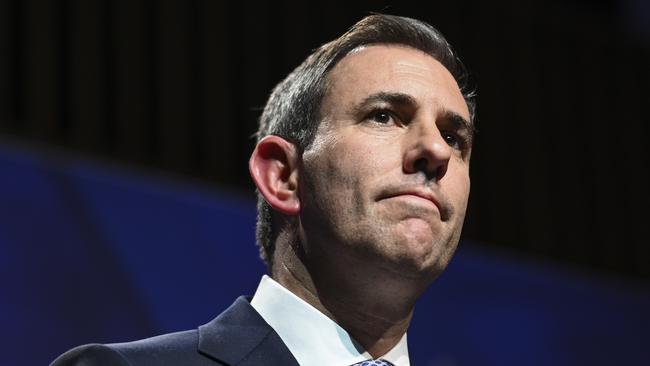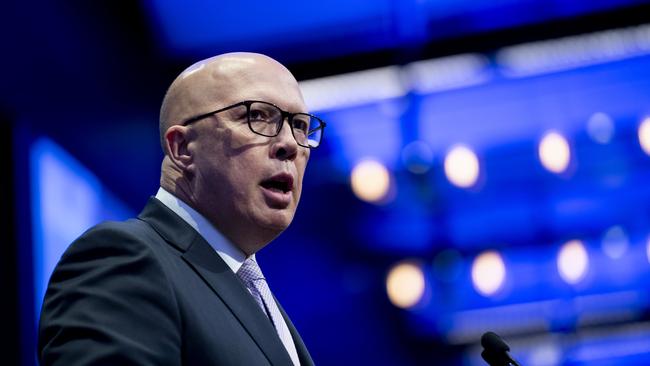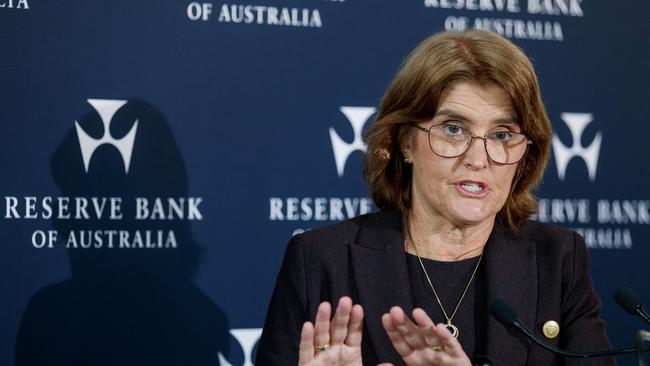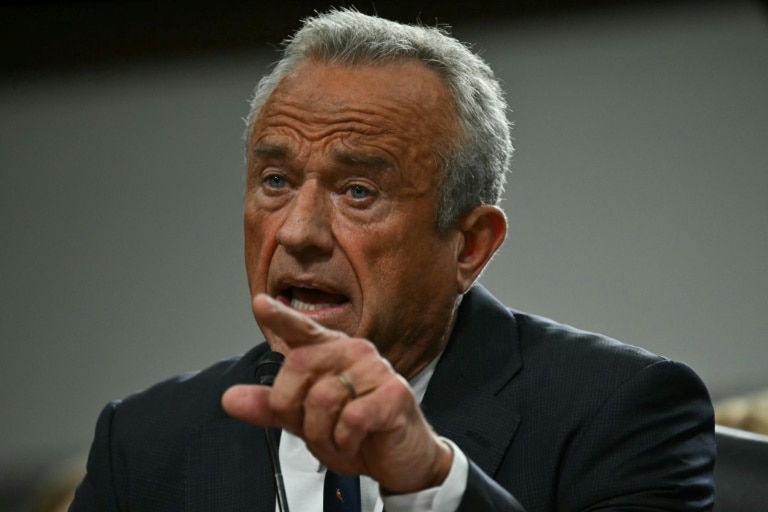Treasurer Jim Chalmers ramps up tax cuts sell as Peter Dutton blasts ‘ugly politics of envy’
Jim Chalmers has amped up his tax cut sell, revealing the group of Aussies expected to pocket an average of $3000 amid renewed concerns on the inflation fight.

Breaking News
Don't miss out on the headlines from Breaking News. Followed categories will be added to My News.
Treasurer Jim Chalmers has ramped up his sell of Labor’s revamped tax cuts, releasing fresh analysis showing families are expected to pocket an average tax cut worth more than $3000 next financial year.
The intervention comes as Opposition Leader Peter Dutton sharpened his attacks against Labor on Saturday, accusing the government of “failing at economic management”, amid renewed concerns from the Reserve Bank and economists that big spending budgets risked working against efforts to tame persistent price pressures.
Unveiled eight days ahead of the tax relief rollout, the new Treasury analysis reveals that the average household with children is expected to pocket a $3268 tax cut next financial year – worth $63 a week.

Households without children are expected to receive more modest relief, with Treasury calculating an average annual tax cut of $1716, amounting to $33 a week.
Speaking on Sunday. Treasurer Chalmers said families and Middle Australia were designed to be the main beneficiaries of the stage three package unveiled in January.
“Fighting inflation and easing the cost of living is our priority,” Dr Chalmers said.
“Our economic plan is all about helping Australians earn more and keep more of what they earn and that’s why we’re focused on strong and sustainable wages growth and cost of living tax cuts which will kick in from July 1.”
But addressing party faithful a day earlier, Mr Dutton criticised the government for having “stirred up the ugly politics of envy” via their tax changes.
“The cost-of-living crisis gripping our nation is of Labor’s own making,” Mr Dutton told the Liberal Party’s annual federal council in Sydney.
“Instead of taking the pressure off inflation by reining-in wasteful spending, [Anthony Albanese’s] government has lifted spending by a staggering $315bn.“
Australians are paying 20 per cent more in personal income tax since the last election,” he said, referring to the impact of bracket creep as higher wages growth, spurred by the current inflation squeeze, bolsters workers’ taxable income.

AMP chief economist Shane Oliver said while cost of living relief would potentially prove popular with voters, government decisions were “making the RBA’s job harder” which would ultimately delay mortgage relief.
“It’s yet again a reminder of why responsibility for getting inflation is in the hands of the RBA and not politicians,” Dr Oliver said.
“Unfortunately, it means we have to continue to rely on the blunt instrument of high interest rates with its unfair impacts on different parts of the community.”
That view was shared by Westpac economists who sounded the alarm over the increased cost-of-living support, set to be unleashed from July 1, warning that tens of billions of spending in Labor state and federal budgets threatened to stoke inflation.
“The question is not whether fiscal settings are less restrictive and more accommodative, they unambiguously are more accommodative,” Westpac senior economist Pat Bustamante said.
“The growing fiscal impulse will be an additional support, but it adds to inflation risks, particularly in areas where there are existing capacity constraints, such as the construction sector.

“If the concerns around persistent price pressures continue, this may add to the risk that interest rate relief is delayed.”
The new research comes after RBA officials on Tuesday indicated growing concerns that big spending budgets risked adding to demand and undermining monetary policy.
“Recent budget outcomes may also have an impact on demand, although federal and state energy rebates will temporarily reduce headline inflation,” the statement from the RBA’s June meeting read.
Alongside Labor’s tax package, households are also set to benefit from a $300 energy rebate in the coming financial year, lopping $75 off power bills in the September quarter. The measure will be topped up by additional electricity rebates in certain states, including Queensland and Western Australia.
Following the federal government’s intervention in the national wage case, 2.6 million minimum and award wage earners will see their pay packets rise by 3.75 per cent from July 1 – an increase worth $33.10 a week at a minimum.
Originally published as Treasurer Jim Chalmers ramps up tax cuts sell as Peter Dutton blasts ‘ugly politics of envy’




